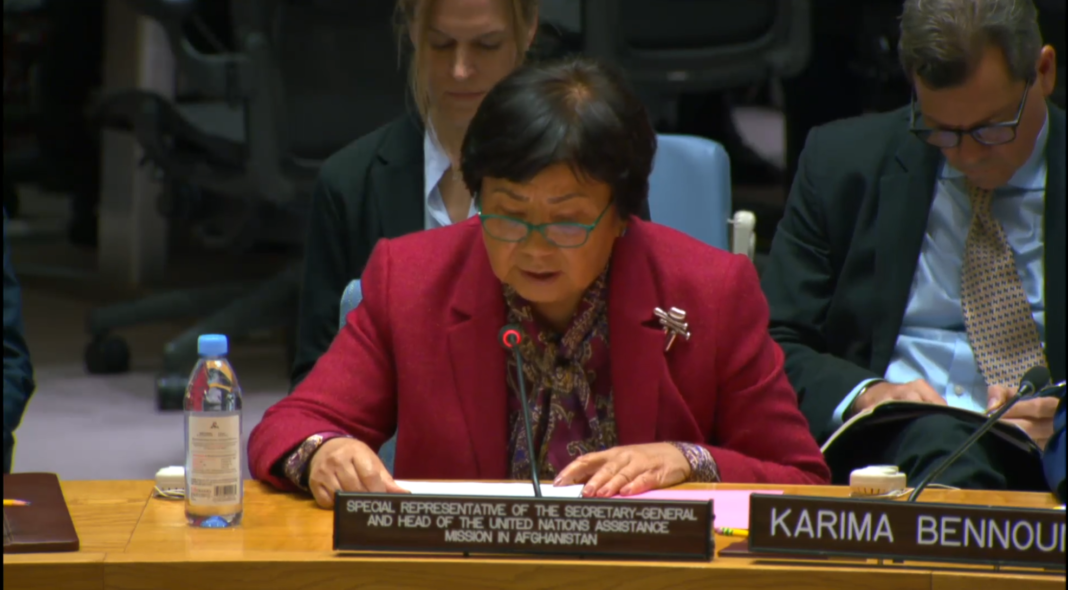The UN Special Representative for Afghanistan Roza Otunbayeva has emphasized the need for a revised approach in engaging with the Taliban. Despite disagreements on matters such as women’s rights and inclusive governance, Otunbayeva believes that a new strategy should be pursued.
She expressed concerns about the lack of progress and trust erosion among all parties involved. It is important to note that engaging with the Taliban does not imply endorsing their policies; rather it is an attempt to bring about change.
Otunbayeva strongly opposes the Taliban policies, which have included than 50 decrees aimed at restricting women’s participation in public life and education. In a UN report based on interviews with over 500 Afghan women, it was found that 46% of them believe the Taliban should not be acknowledged under any circumstances. However, Otunbayeva argues that dialogue must continue with those in power.
The proposed reframed strategy should acknowledge the Taliban’s responsibility for the well-being of all Afghan women. It should also include mechanisms to address long-term concerns of those in control and foster a more unified stance, from the international community.
Sima Bahous, the leader of UN Women, which is the UN agency focused on gender equality has drawn attention to the financial consequences of the Taliban’s policies. It is estimated that these policies cost one billion dollars annually. Bahous stressed the significance of women being heard. Emphasized that the UN Charter should be a guiding force for progress. Additionally, she called for a meeting of the Security Council Committee for sanctions against Afghanistan to explore their role in addressing violations of women’s rights in the country.
The call to action also involved a plea to explicitly incorporate “gender apartheid” into law. Karima Bennoune, an expert in matters echoed this sentiment and urged the global community to hold the Taliban accountable, for their systematic destruction of women’s rights.











